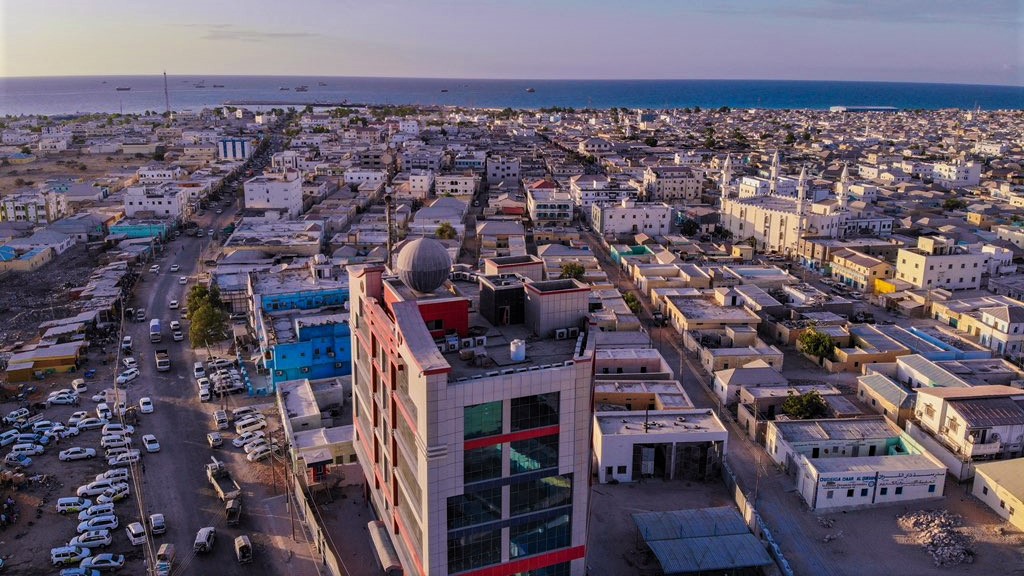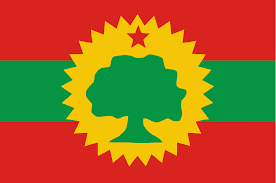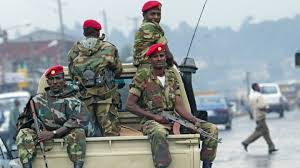The coastal city of Boosaaso in Somalia’s northeast Bari province has witnessed relative calm and peace for a number of years, which in itself is rare in a country synonymous with decades of armed conflict and anarchy. However, in recent weeks the once-peaceful coastal city of Boosaaso has suffered a wave of terror attacks at an unprecedented scale not seen in the city’s history, until now.
The following piece will focus on getting a better understanding of Boosaaso’s deteriorating security situation, as well as the possible solutions amid a firestorm of internal political dissent in the Puntland state.
Terrorism is not a new phenomenon in Somalia, including its semi-autonomous Puntland regional state. Yet the spike in lethal terror attacks during the month of February has sent shockwaves to many people, including myself.
The city of Boosaaso has seen three deadly bombings in the span of 12 days between the dates of February 9th and February 21st, with two out of these three bombings occurring within a 48 hour period.
The first blast happened on the 9th of February when a bomb was detonated in a small café frequented by local youth that had come to socialize and chew Khat, a popular narcotic, widely used in Somalia. A total of three people where instantly killed, while several others where confirmed wounded.
Ten days later on the 19th of February another bomb was detonated at a similar establishment, However, the targets of the blast differed this time around. A meeting at a restaurant between traditional elders, electoral delegates and personal aides of Somalia’s Minister of Planning Jamal Hassan took a turn for the worse when a blast from an improvised explosive device (IED) ripped through the restaurant.
Once the smoke cleared, scores of people where laying in a pool blood, either dead or injured. The deceased victims had been identified as Jiif Caaqil Yasin Cali Dhahar and Cabdi Seed. It’s been revealed that the IED was planted in the restaurant hall prior to the high profile meeting, which means in essence whoever planted the bomb had the itinerary of the victims.
Furthermore, the night prior to the bombing a number of the attendees, in particular the traditional elders held a press conference in which they condemned and lambasted the president of Somalia’s Puntland regional state, Sacid Deni, in which they accused him of interfering in the local parliamentary elections
The Traditional elders also vowed to not recognize the election results if president Sacid Deni didn’t stop infringing on there democratic right to elect the candidate that the locals in Bari province deem most suitable.
As a result, many people suspect that the deadly explosion targeting the traditional elders and electoral delegates was a politically motivated attack, with the chain of events that transpired during that period further proving that notion.
On a similar note, according to security sources with intricate knowledge on the matter that spoke with Halgan Media on condition of anonymity, they reveal that following the blast, officers from Puntland’s Criminal Investigation Department (CID) where barred from accessing the blast site and conducting a thorough investigation.
This in itself was out of protocol. Furthermore, the blast itself took place exactly where the traditional elders where sitting inside the restaurant, which in essence means that the bomb was planted prior to the arrival of the delegation. And whoever placed the bomb at the venue was well-aware of the traditional elders itinerary before-hand.
Jamal Hassan, the minister of planning for Somalia’s federal government has even called for an independent investigation into the February 19th bombing in Boosaaso due to the manner in which the traditional elders where brutally assassinated. The Puntland regional state of Somalia led by Sacid Deni is yet to correspond to his request.
48 hours later on the 21st of February, the Puntland state president, Sacid Deni arrived in Boosaaso. However, within minutes of arriving in the city, his convoy was struck by a roadside bomb. Sacid Deni narrowly survived the assassination attempt, while two of his guards where instantly killed in the explosion. The Al-Qaeada affiliated armed group Al-Shabaab claimed responsibility for the attack.
Hours after the incident, president Sacid Deni released a statement giving condolences to the victims of the blast but other than that made no mention on how the insurgents where aware of his itinerary and as a result where able to track his movements, almost killing him.
At the moment, Puntland president Sacid Deni appears weak and out of touch with reality. His problems which are intertwined with the current problems that the Puntland state face on multiple fronts is a result of his callous and often careless decision making.
Attacking Boosaaso, refusing the implementation of decrees issued by the traditional elders, which in itself is a violation of Puntland’s state constitution, along with a mismanagement of state funds which has contributed to the soaring inflation, plus the rising insecurity in the region are just some of the leading factors contributing to an already volatile situation.
These issues can be attributed to a break down in public confidence with the Puntland government and has furthermore contributed to the deep levels of mistrust growing within the ranks of Puntland’s various security agencies due to the detrimental policies of Sacid Deni.
However, as it stands, president Sacid Deni doesn’t seem to be budging let alone taking the necessary steps to revamp security in Boosaaso and reverse the political mishaps unfolding under his watch as he now attempts to interfere in the federal parliamentary elections that are to be held in Boosaaso.
This in itself is more-than certain to enrage all the clans in Bari province, that already vehemently oppose his administration, which if goes unchecked, is guaranteed to unravel a Panodora’s Box that nobody is ready for including Sacid Deni.
Halgan Media




